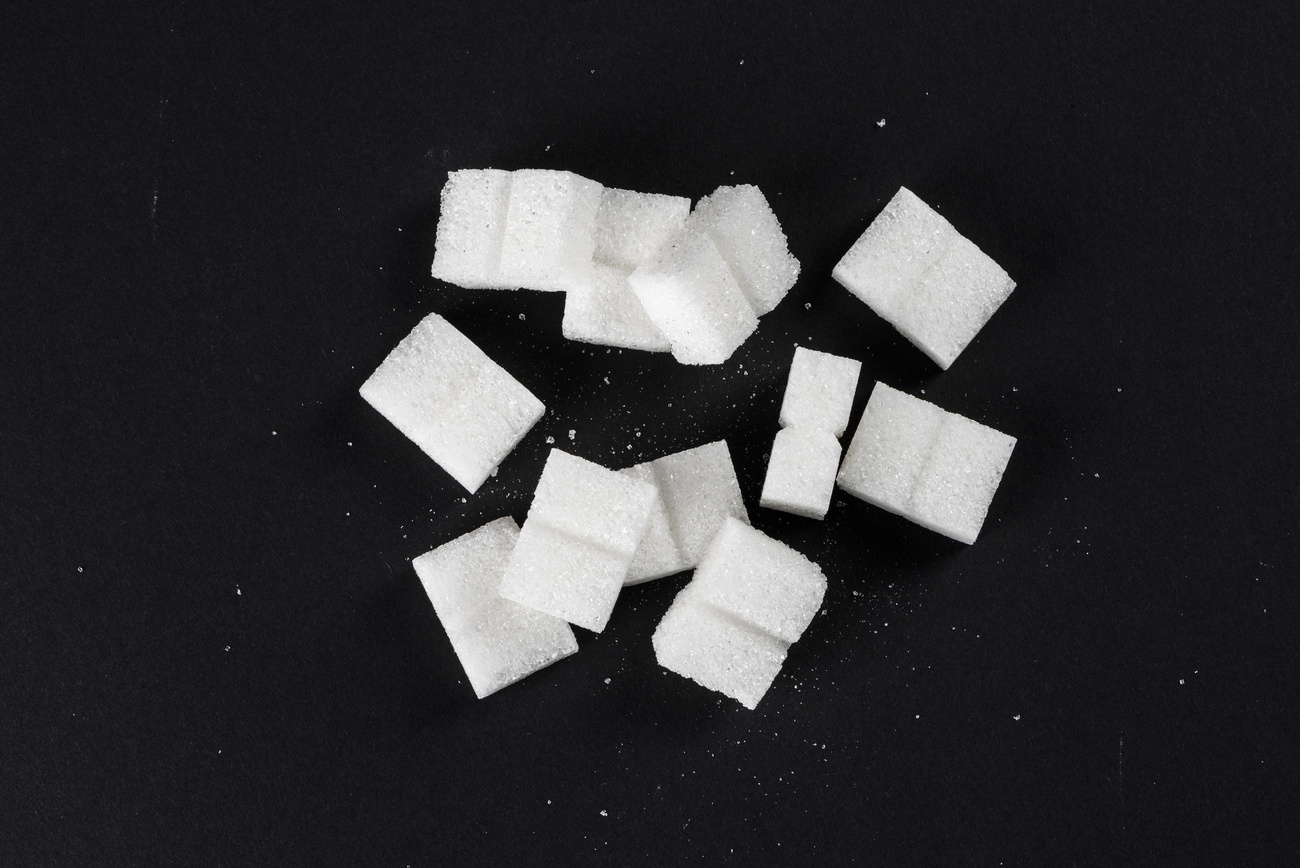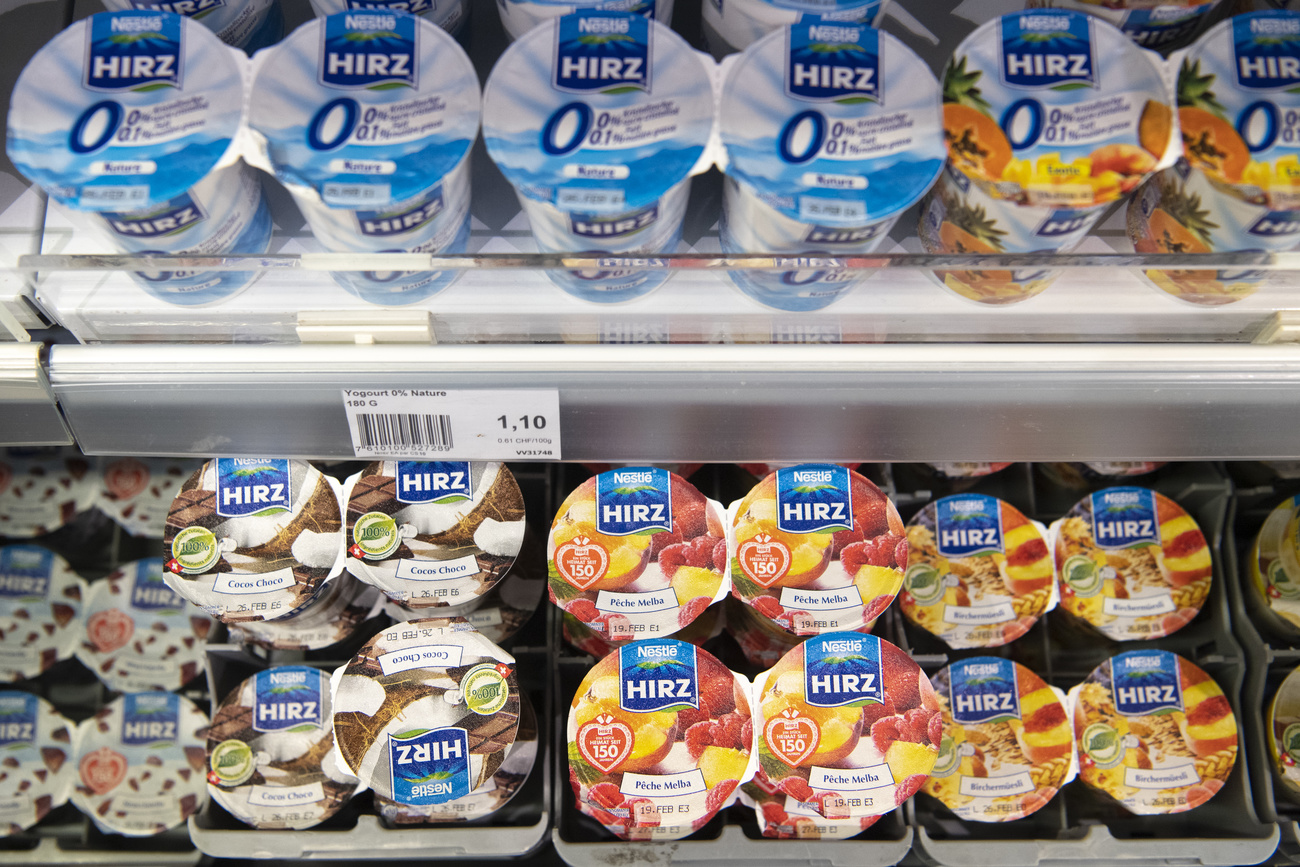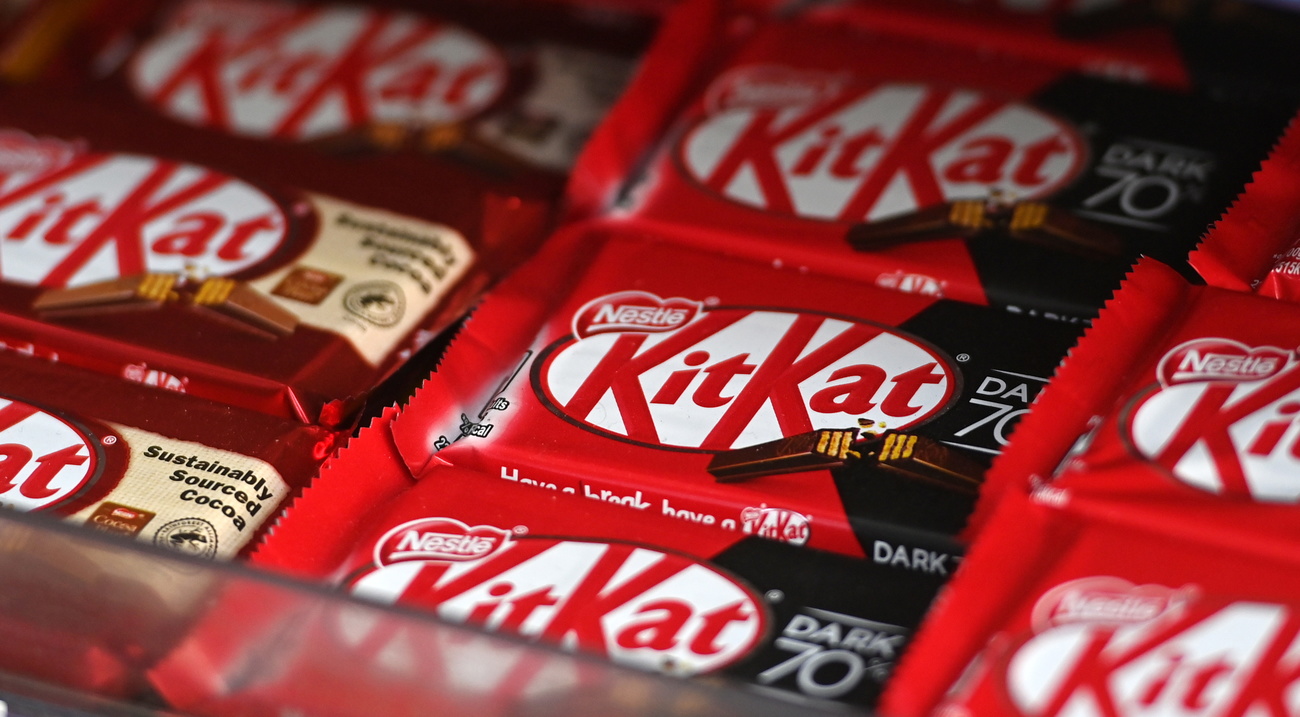
Sugar debate in Switzerland leaves bitter taste

The House of Representatives has rejected two cantonal public-health initiatives aiming to regulate sugar in food and drinks. The political controversy over sugar in Switzerland shows the power of the agri-food lobby.
No means no. Since 2017, the Swiss government and a majority in parliament have consistently rejected initiatives to regulate sugar in food and drinks for reasons of public health. At the cantonal level, French-speaking Vaud, Neuchâtel and Jura have also dismissed similar projects. The most recent parliamentary initiatives – from cantons Geneva and Fribourg – failed as well: the House of Representatives discarded them in its recent spring session. The Senate had done the same in 2021 – a bitter outcome for those who support a sugar tax.
Fribourg wanted the sugar content of food and drinks to be disclosed on nutritional labels. The initiative was presented by two doctors who are also parliamentarians. The canton also requested that labels be easy to read and understand. Geneva, meanwhile, wanted to restrict the amount of sugar added to commercial beverages and processed foods.
The conservative majority in the House of Representatives felt Fribourg’s initiative was unnecessary. A recent revision of Switzerland’s food laws will make sugar content obligatory on food labels, they argued. Plus, the European Union is currently considering more legible labelling regulations. For these reasons it makes more sense for the House of Representatives to wait and see what the EU decides. Instead of a tax on sugar, the Swiss government prefer to rely on the food industry’s voluntary initiatives.
The conservative majority in the House of Representatives felt Fribourg’s initiative was unnecessary. A recent revision of Switzerland’s food laws will make sugar content obligatory on food labels, they argued. Furthermore, the European Union is currently considering more legible labelling regulations. For these reasons it makes more sense for the House of Representatives to wait and see what the EU decides. Instead of a tax on sugar, the Swiss government prefer to rely on the food industry’s voluntary initiatives.

More
More Swiss companies pledge to cut sugar
“The Milan Declaration has already made it possible to reduce the sugar content of breakfast foods,” said Philippe Nantermod, a centre-right Radical-Liberal parliamentarian and member of the science, education and culture committees. The Milan Declaration is an initiative launched in 2015 by the Federal Food Safety and Veterinary Office, according to its spokesperson, Sarah Camenisch.

“In signing the declaration, retailers and producers of food and beverages voluntarily commit to decreasing the sugar content of their products,” Camenisch said. So far, 24 Swiss companiesExternal link, newly including Coca Cola Switzerland and Rivella Group among others, have signed the declaration.
The Milan Declaration was expanded in February 2023. “Now, in addition to breakfast cereals and yoghurts,” Camenisch explained, “soft drinks, dairy drinks, and quark will also be part of the commitment. The signatory companies want to reduce the sugar content of these products by 10% by the end of 2024”.
“In short, in Switzerland we have succeeded in bringing all of the actors – from production to distribution – to the table to implement a coordinated strategy, with voluntary goals,” said Simone de Montmollin, a Radical-Liberal parliamentarian. “These objectives are pursued by all and have proven successful. They make it possible to achieve a common goal. This collaboration certainly wouldn’t have been feasible if a sugar tax had been introduced.”
According to de Montmollin, the results are convincing: since 2016, the quantity of sugar in breakfast cereals has decreased by 25% and in yoghurts by 9%. “There’s no reason to think that the results will be any less substantial for cereals and yoghurts, nor that legislation would promote faster progress.”
A powerful lobby
Coca Cola Switzerland says it is happy that it committed to the Milan Declaration and they state they have taken measures prior to signing the declaration. “Our company has reduced the sugar content of its product range by more than 10% since 2005,” said spokesperson Natasja Sommer. “To achieve the new goals, Coca Cola Switzerland will introduce other innovations.” The company invited parliamentarians to an information session on March 15 in Bern.
This marketing irritates sugar-tax supporters. “The sugar lobby is very powerful. In addition to Coca Cola, the agri-food lobby and the big retailers are mobilizing,” said Green Party parliamentarian Léonore Porchet. “A tax on sugar would inevitably have an impact on their business.”
According to Valérie Piller Carrard, a Social Democrat lawmaker, the lobby is even present within the science, education and culture committees: de Montmollin is a board member of Sucre Suisse SA, Switzerland’s biggest sugar manufacturer.

De Montmollin is unruffled by this: “The parliamentary laws governing recusal are very clear, and I have followed them to the letter. Moreover, no one would think to ask any parliamentarians who are members of ASLOCA [an organisation supporting the rights of tenants] not to take part in debates on lease laws. And ASLOCA members participated vigorously in debating these issues during the second week of [parliament’s] spring session. Unlike them, I’ve made a personal choice not to express myself during debates about sugar, although nothing obliges me to do this.”
Nonetheless, those who support a sugar tax feel powerless against the powerful sugar-industry lobby: “In comparison, the health sector, patient-advocate organisations, and consumer-advocate organisations have few means to call for more effective prevention,” said Léonie Chinet, secretary general of diabètevaud, an organisation for diabetics in canton Vaud.
Switzerland drags its feet
“Nearly 80 countries have introduced a sugar tax of one kind or another,” said Social Democrat parliamentarian Laurence Fehlmann Rielle. “It is heart-breaking that in Switzerland we don’t want to try some type [of tax]. We are sticking with the Milan Declaration, but reducing sugar in drinks by 10% is nothing. It’s a charade.”
“We are unable to grasp this issue from a public-health perspective,” said Social Democrat Piller Carrard. “It’s unfortunate. Other countries have tackled this problem head-on. And it’s not for nothing that they’ve reacted. There’s twice as much sugar in a decilitre of Fanta in Switzerland than there is in Great Britain. According to the World Health Organization, daily consumption of sugar shouldn’t exceed six teaspoons, but in our country the per-capita consumption is four times that.”
“It is heart-breaking that in Switzerland we don’t want to try some type [of tax]. Reducing sugar in drinks by 10% is nothing. It’s a charade.”
Laurence Fehlmann Rielle
Fehlmann Rielle feels that the United Kingdom has handled the issue well: “The authorities warned industry two years in advance that they were going to tax beverages containing added sugar. This allowed companies to adapt and to reduce the quantity of sugar in their drinks in order to pay lower taxes.” And in Portugal the authorities introduced a consumer tax on sugary beverages, and a significant drop in consumption was rapidly apparent,” she said.
Porchet, the Green Party parliamentarian, cited the example of Chile: “Very young children were victims of obesity. The authorities took measures to identify [sugar-filled] products very clearly. And the results are impressive: the consumption of sugary drinks has fallen by almost 25%.” As of 2023, Colombia has also introduced a sugar tax on ultra-processed foods.
Nutrition – a personal decision?
The opponents of a sugar tax in Switzerland call for personal responsibility. “I think that citizens need to take charge of their own nutrition,” said Radical-Liberal Nantermod. “As for educating children, it’s primarily the responsibility of their parents. School plays a role as well, but that’s within the jurisdiction of the cantons, not the federal government.”
Porchet disagreed: “80% of processed foods contain added sugar. We’re clearly living in a society conducive to diabetes […] More and more children are developing obesity and type 2 diabetes. We therefore cannot rely exclusively on individual responsibility.”

More
Nestlé says less than half of its mainstream food and drinks are considered ‘healthy’
“It’s crazy,” said Piller Carrard. “As soon as the issue of sugar comes up, things quickly turn sensitive. I’ve had discussions with sugar-beet producers, and I keep telling them that they have nothing to fear: a tax is not going to reduce production.”
Fehlmann Rielle concluded that “unfortunately it’s always the Social Democrats and the Greens who are attentive to this problem. But public health should not be a left-right issue”.

More
Life is looking sweeter for Swiss sugar farmers

In compliance with the JTI standards
More: SWI swissinfo.ch certified by the Journalism Trust Initiative































You can find an overview of ongoing debates with our journalists here . Please join us!
If you want to start a conversation about a topic raised in this article or want to report factual errors, email us at english@swissinfo.ch.